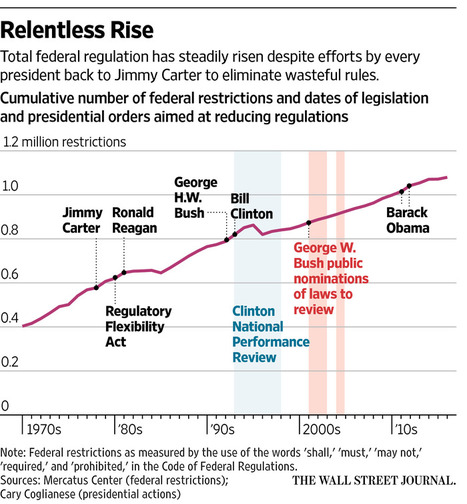(p. 5) HONG KONG — For the 23rd year running, Hong Kong is, in the opinion of the conservative Heritage Foundation, the freest economy in the world. With low taxes, an efficient government and private businesses running the city buses and its spotless subways, this place is a libertarian dream come true.
So the story goes.
Many people who live in Hong Kong beg to differ. This has long been a city of tycoons, with a few families holding sway over the supermarkets, drugstores and real estate market, limiting competition and keeping prices high. And in the past few weeks, four words have further shaken the story line that this former British colony is a free-market nirvana.
Food Truck Pilot Scheme.
. . .
In Hong Kong, the government agency that devised the Food Truck Pilot Scheme had a new, bold and innovative idea: stationary food trucks that don’t park on the street. A spokesman for the city’s Tourism Commission explained why in an email:
“Since the urban area of Hong Kong is already saturated with traffic, it would not be desirable from the traffic management and road safety angles to allow food trucks to park and operate on public roads. Moreover, as many locations in Hong Kong have already got a number of food establishments, it would thus be desirable to introduce food trucks away from those areas.”
It’s all explained in a raft of guidelines. There are seven annexes in all, including licensing requirements (Annex D), special government loan programs (Annex B) and fixed venues (Annex F).
Then there is Annex C — “Mandatory Requirements for a Food Truck” — that lists in painstaking detail what each truck must have. Some examples: The kitchen floor space must be at least 65 square feet. Each truck must have a potable water tank with a capacity of about 32 gallons, and a wastewater tank at least one and a half times that size. The sink must be at least a foot and a half in length. And so on.
To meet all of those regulations, Hong Kong food trucks must be custom vehicles, bearing little resemblance to the decades-old trucks that congregate near the National Mall in Washington, the capital of a country that has only the 17th freest economy in the world.
All these rules and regulations have Liu Chun-ho, the owner of Ma Ma’s Dumpling, very worried. To meet the stringent requirements, he paid about one million Hong Kong dollars ($129,000) for his new Isuzu truck.
. . .
The workers at Book Brothers hope that their next location, closer to the city’s central business district, will be busier. And if they can’t sell their pork buns, they could always try something else, right? After all, that’s what capitalism is all about.
Not so fast. Please refer to Answer No. 8 of the government’s “Frequently Asked Questions: Application of the Food Truck Pilot Scheme (Pilot Scheme).”
“No alteration of the signature dish proposed by the applicant in the application form will be allowed after the submission of Application and throughout the Scheme,” it declares. “If the operator wishes to change dishes other than the signature dish, he should obtain prior written approval from the Venues and the Food and Environmental Hygiene Department.”
For the full story, see:
MICHAEL FORSYTHE. “Food Truck Rules Outnumber Patrons in Hong Kong.” The New York Times, First Section (Sun., FEB. 19, 2017): 5.
(Note: ellipses added.)
(Note: the online version of the article has the date FEB. 18, 2017, and has the title “The Economy Is Free in Hong Kong. Running a Food Truck Isn’t (See Annex C).”)


